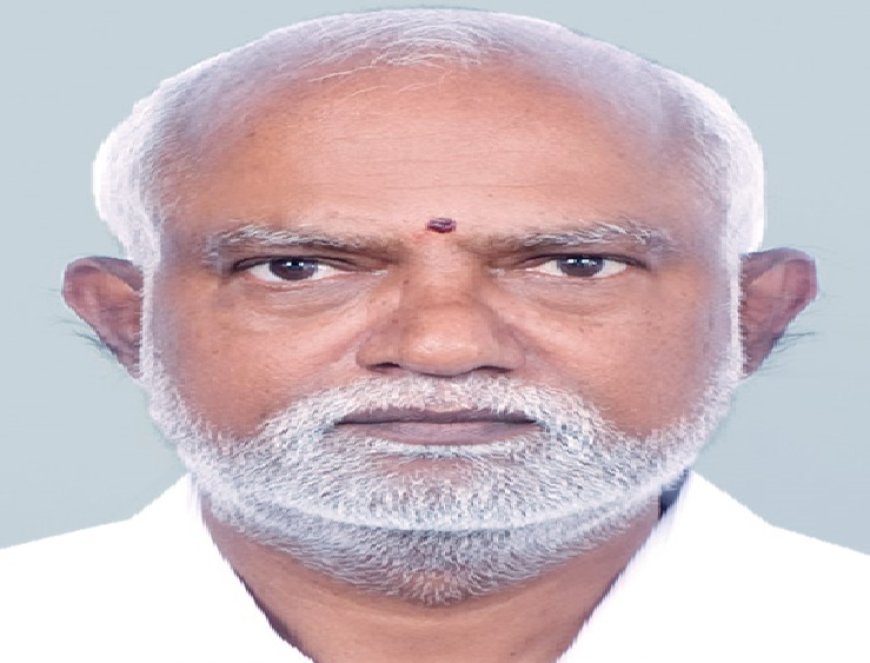Smart and sustainable road construction has become increasingly necessary.
Ramesh Babu Ravuri, Executive Vice President, NCC Limited How do you assess the year 2022-23 for roads and highways sector? How was the performance? What were the key challenges? The construction of national highways in India in 2022-23 fell 13.70% short of the government's target, with only 10,993 km being constructed out of a planned

Ramesh Babu Ravuri
Executive Vice President, NCC Limited
How do you assess the year 2022-23 for roads and highways sector? How was the performance? What were the key challenges?
The construction of national highways in India in 2022-23 fell 13.70% short of the government's target, with only 10,993 km being constructed out of a planned 12,500 km. The Ministry awarded highways of 12,375 km length in the last financial year. Although the pace of construction reached a record high in 2020-21, it slowed down to 30.11 km per day in 2022-23.
Challenges faced by the highway sector include availability of construction materials and machinery, timely completion of projects, trained human resources, and road congestion and safety concerns. It's important for the government and stakeholders to address these challenges to ensure efficient and timely construction of national highways for economic development.
How do you look at the opportunities for your projects and business going forward?
The Ministry of Road Transport and Highways (MoRTH) has set targets to award 12,000 km and construct 12,500 km of highways in India for the fiscal year 2023-24. To achieve this, they plan to raise Rs 10,000 crore through Infrastructure Investment Trusts (InvITs). Despite efforts to improve rail freight, road transport is expected to remain the primary mode of land transportation, accounting for 65-70% of freight. The road freight industry is expected to benefit from increased multi-modal connectivity, demand for e-commerce deliveries, and higher volume from the fast-moving consumer goods (FMCG) sector.
Sustainability plays a major role in the current construction practices. What are the sustainability practices being adopted in roads/highways construction?
Currently, professionals in the highway industry are carefully considering factors such as cost, performance, and environmental sustainability when selecting pavement rehabilitation methods. Among the available alternatives, in-situ recycling processes have emerged as the most promising option to optimize these benefits. By closely monitoring pre-engineering, mix design formulation, construction, and quality control, pavements built using these techniques have the potential to reduce life-cycle costs and environmental impact.
In-situ recycling can be performed through different methods, including in-place or in-plant recycling, as well as hot or cold recycling. In all cases, the primary goal is to use reclaimed asphalt pavement (RAP) and minimize the use of natural aggregates and bituminous binder. Although several recycling projects have been completed in India, progress has been slow.
What are the new-age technologies employed in road/highway construction?
The construction industry worldwide is promoting the use of innovative materials, automation, and machine control technologies to enhance efficiency and minimize environmental impact. Developed countries have already experienced benefits such as increased productivity, controlled costs, predictability, efficiency, safety, and high-quality standards. These advancements have enabled them to manage projects more effectively and complete them on time.
In India, the construction industry remains one of the least automated sectors; however, efforts are underway to introduce new technologies into the industry. The road construction sector is being reshaped with a renewed focus on sustainable development through the use of recycled materials, plastic waste, self-healing asphalt, and other innovative materials. Automation and machine control technologies are also gaining popularity, driving original equipment manufacturers to incorporate intelligent and advanced road construction technologies to enhance construction quality.
Furthermore, advanced technologies such as project monitoring information systems, intelligent transport and traffic management systems are being employed in highway development and management. These technologies enable project monitoring, improve traffic efficiency, enable real-time vehicle tracking, and support incident management.
What is your outlook on the Indian roads & highways sector? What could be the major trends to look for in future?
To provide a boost to the road sector, the government has implemented a range of measures, including a focus on eliminating pre-construction obstacles, expediting project execution, and enhancing construction quality, which have been effective in improving the overall performance of the sector.
Recent amendments to the Hybrid Annuity Model (HAM) and Build-Operate-Transfer (BOT) concessions are expected to enhance private sector involvement in the highway sector and improve project quality. During tendering for HAM projects, the bid project cost and operation and maintenance costs have been delinked. Additionally, the lock-in period for BOT projects has been reduced from two years to one year. The reinstatement of Earnest Money Deposit (EMD)/bid security is expected to reduce competitive intensity in the Engineering, Procurement, and Construction (EPC) space.
Smart and sustainable road construction has become increasingly necessary, and the government is encouraging the use of non-conventional materials such as cold mix asphalt, geo-textiles, fly ash, iron and copper slag, plastic waste, and demolition waste. Advanced technologies such as intelligent traffic management systems, electronic tolling, network survey vehicles, project monitoring information systems, and wireless sensors are also being scaled up to improve the quality of road construction.
Hits: 6







